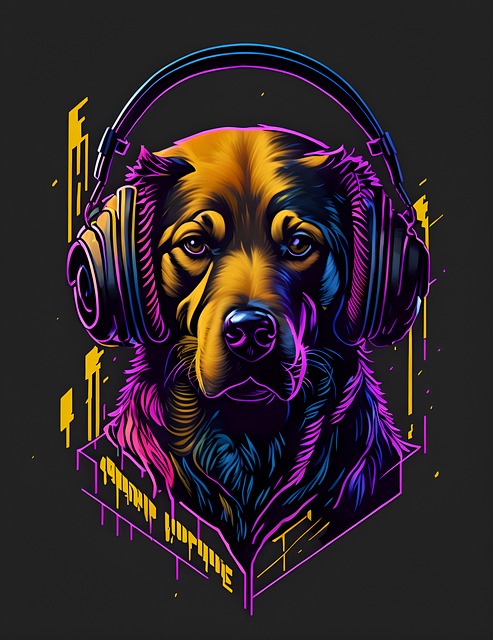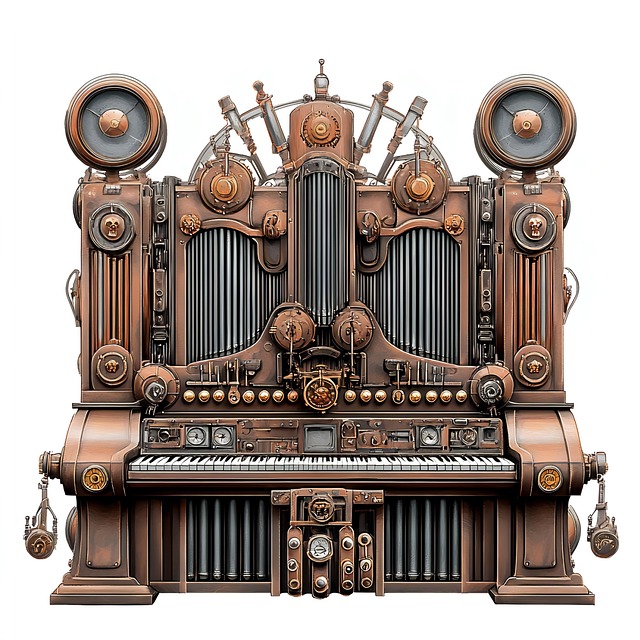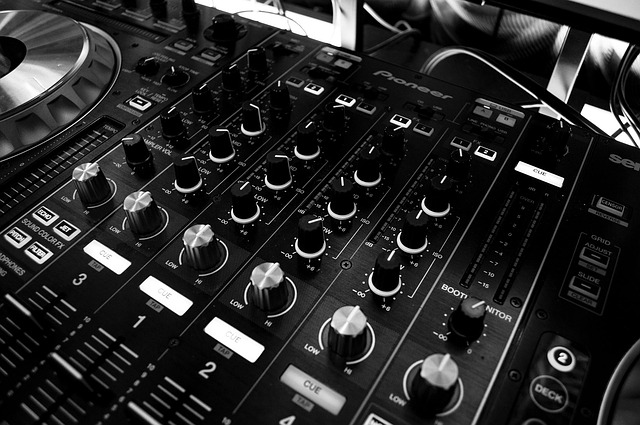AI music tools are revolutionizing the creative process for ai musicians, offering unprecedented capabilities in composing, arranging, and producing music. These technologies leverage algorithms that analyze vast musical datasets to generate unique compositions, enhancing production efficiency and artistic exploration. By automating repetitive tasks, AI empowers musicians to focus on their vision, fostering exciting collaborations between human creativity and technological execution. This blend of human-machine intelligence promises to redefine the future of music, offering benefits such as faster production times, encouraged experimentation, and access to high-quality tracks for untrained individuals, while also raising ethical concerns about originality and intellectual property rights.
“Welcome to the future of music creation! This blog is a comprehensive guide for musicians and producers navigating the exciting world of AI music tools. From understanding the basics to unlocking advanced techniques, we explore how artificial intelligence is revolutionizing the industry. Discover the benefits of AI in composition, arrangement, mixing, and more. Uncover ethical insights and stay ahead of the curve as we delve into the transformative power of these tools for ai musicians.”
- Understanding AI Music Tools: A New Era for Musicians
- The Benefits of AI in Music Production: Enhancing Creativity
- AI and its Role in Composing and Arranging Music
- Utilizing AI for Mixing, Mastering, and Sound Design
- Ethical Considerations and the Future of AI Musicians
Understanding AI Music Tools: A New Era for Musicians

Artificial Intelligence (AI) music tools are transforming the creative landscape for ai musicians, opening up a new era of possibilities. These innovative technologies enable artists to compose, arrange, and produce music in ways that were once unimaginable, breaking down barriers between human imagination and technological execution. AI algorithms can analyze vast musical datasets, learn patterns, and generate unique compositions, offering a wealth of creative assistance.
For ai musicians, this means faster production times, enhanced collaboration with AI partners, and the ability to explore diverse musical styles. From generating melodic ideas to automating repetitive tasks, AI tools empower artists to focus on their artistic vision. As these technologies continue to evolve, the future promises exciting collaborations between human creativity and AI’s computational power, pushing the boundaries of what music can be.
The Benefits of AI in Music Production: Enhancing Creativity

Artificial Intelligence (AI) is revolutionizing the music industry, offering a plethora of benefits for both emerging and established ai musicians. One of its most significant advantages lies in fostering creativity. AI music tools can generate unique and diverse melodies, harmonies, and rhythms, inspiring musicians to explore new sonic territories. These tools learn from vast musical datasets, enabling them to understand and replicate various genres and styles, thus providing a rich source of creative input.
By automating repetitive tasks like sound design or arrangement, AI allows musicians to focus on more intricate aspects of their craft. It can suggest chord progressions, identify harmonic structures, or even compose backing tracks, all of which can be tailored to the user’s preferences and artistic vision. This collaboration between human creativity and machine intelligence opens up endless possibilities for music production, ensuring that ai musicians stay ahead of the curve in a constantly evolving industry.
AI and its Role in Composing and Arranging Music

Artificial Intelligence (AI) is transforming the music industry, offering unprecedented opportunities for both seasoned musicians and aspiring artists. At its core, AI facilitates a deeper level of creativity by assisting in composing and arranging music. These intelligent tools can generate melodies, harmonize chords, and even create entire compositions based on user inputs, such as desired keys, tempos, or emotional themes. By leveraging machine learning algorithms, AI musicians can learn from vast datasets of existing music, enabling them to produce unique and diverse sounds.
For ai musicians, the benefits are manifold. AI composition tools streamline the creative process, providing a rich palette of musical ideas that can be further refined and personalized. This not only accelerates production time but also encourages experimentation, allowing artists to explore new sonic landscapes. Moreover, AI-driven music arrangement capabilities enable users to focus on other essential aspects of their craft, such as lyrics or performance, while the technology handles the intricate details, ultimately elevating the overall musical experience.
Utilizing AI for Mixing, Mastering, and Sound Design

AI has emerged as a game-changer for music production, offering powerful tools that can enhance and streamline the creative process. For ai musicians, leveraging AI in mixing, mastering, and sound design opens up a world of possibilities. These advanced algorithms can analyze and adjust audio levels, apply dynamic processing, and even mimic the impact of physical mixers and studios, all while optimizing for quality and efficiency.
Through sophisticated algorithms, AI can create unique and nuanced sound effects, from intricate textures to atmospheric pads, providing musicians with an extensive library of sounds at their fingertips. This technology allows artists to explore new sonic territories and push creative boundaries, ensuring that their music stands out in today’s competitive landscape.
Ethical Considerations and the Future of AI Musicians

As AI musicians gain traction, ethical considerations come into sharp focus. The future of AI in music production promises both excitement and challenges. On one hand, these tools can democratize access to music creation, enabling individuals without formal training to produce high-quality tracks. They can also accelerate creative processes and foster innovation. However, concerns arise regarding originality, as AI models rely on existing datasets for inspiration. This raises questions about intellectual property rights and the potential devaluation of human creativity.
Moreover, the impact on the livelihoods of professional musicians and producers is a crucial aspect to consider. As AI tools become more sophisticated, there’s a risk that they could replace certain tasks traditionally performed by humans. Balancing the benefits of AI with the preservation of artistic integrity and fair compensation for creators will be key in shaping the future of this technology within the music industry.
In conclusion, AI music tools are transforming the landscape of music production, empowering ai musicians with unprecedented creative capabilities. From composition and arrangement to mixing and mastering, these tools offer a wealth of benefits that can enhance and streamline workflows. As we navigate this exciting new era, it’s crucial to consider both the immense potential and the ethical implications. By embracing responsible AI integration, musicians can unlock innovative possibilities while ensuring the integrity of their artistic vision for generations to come.
